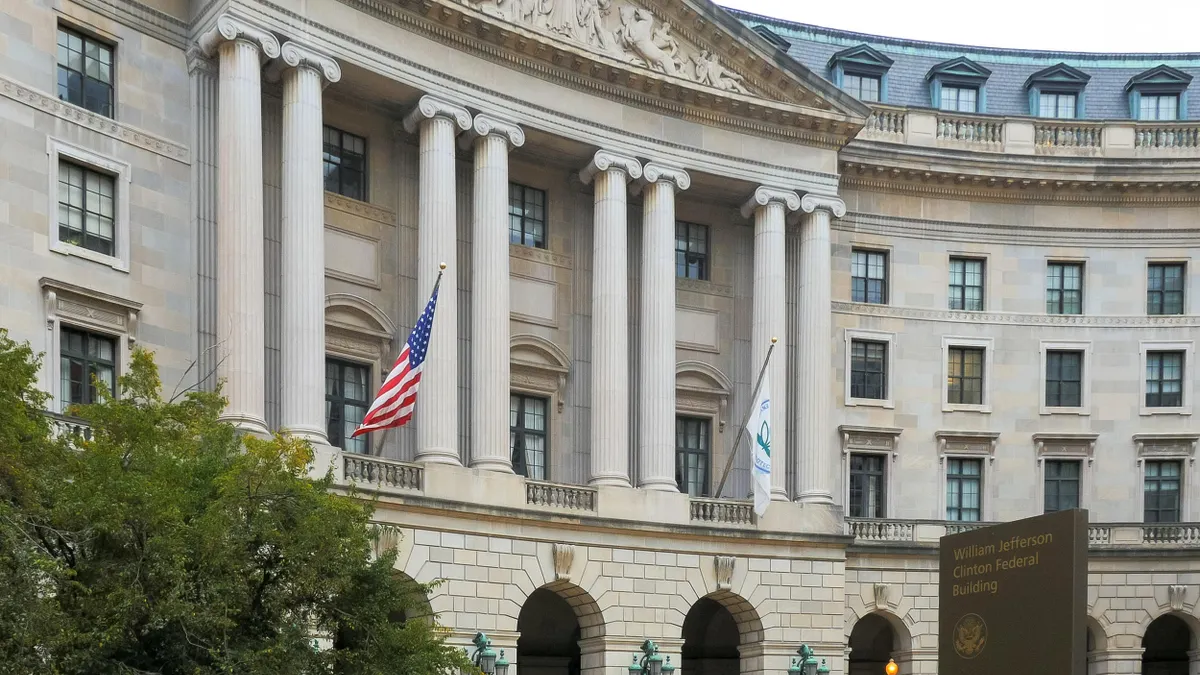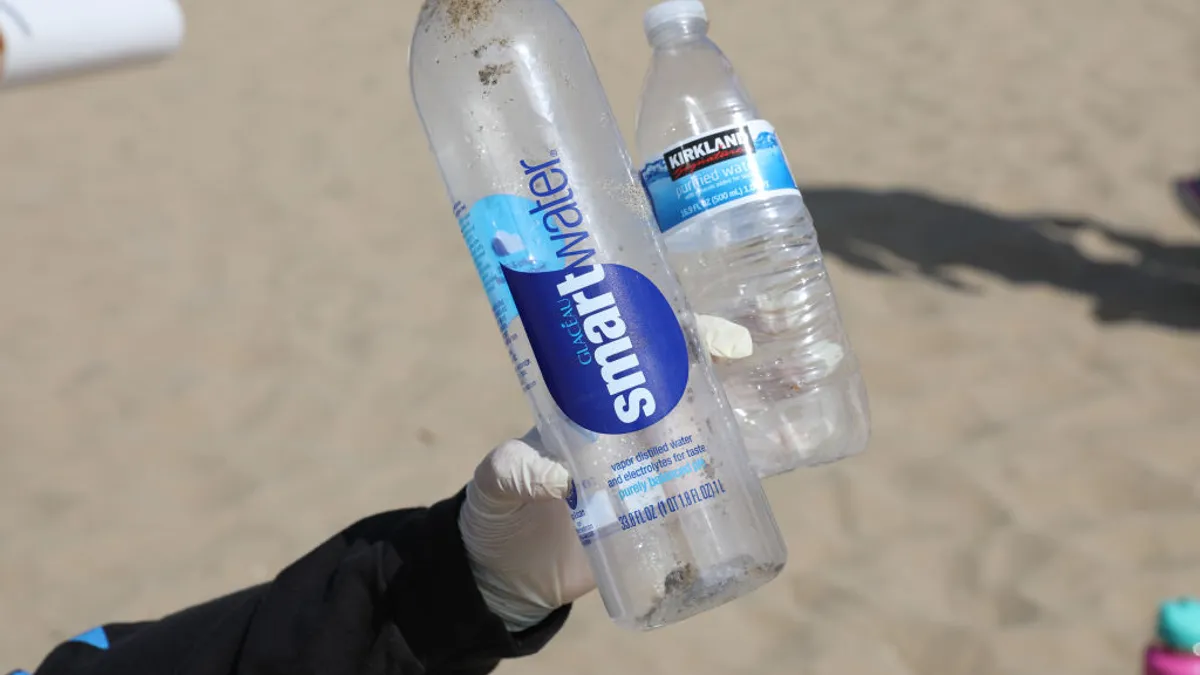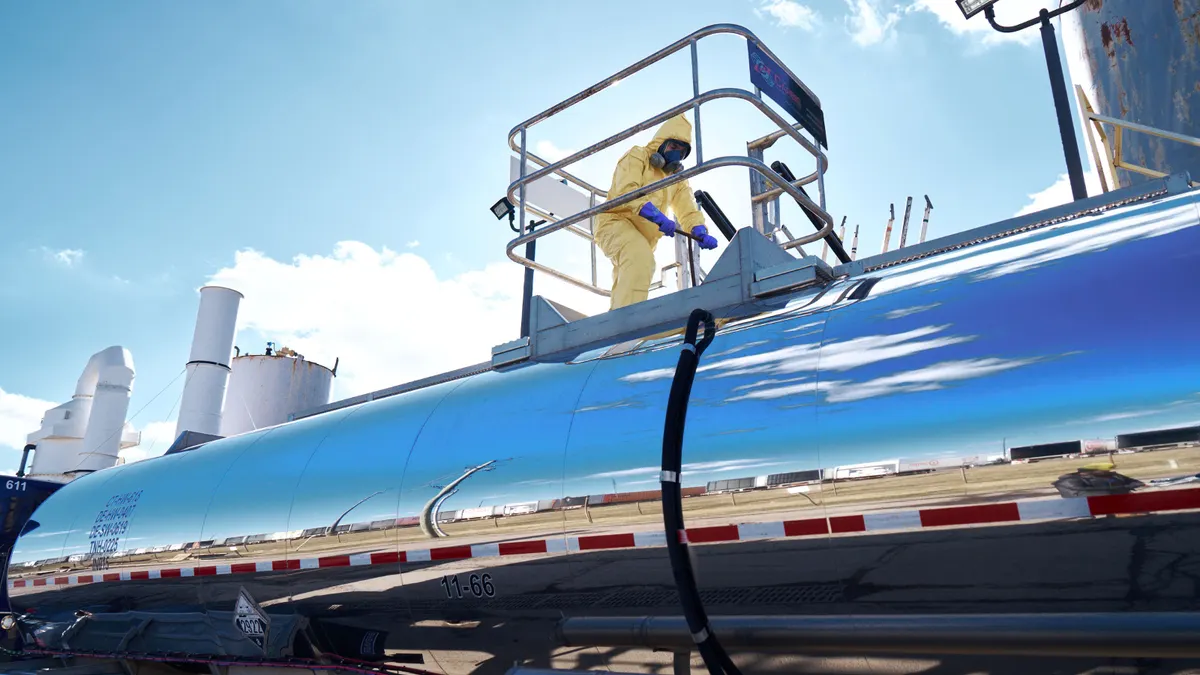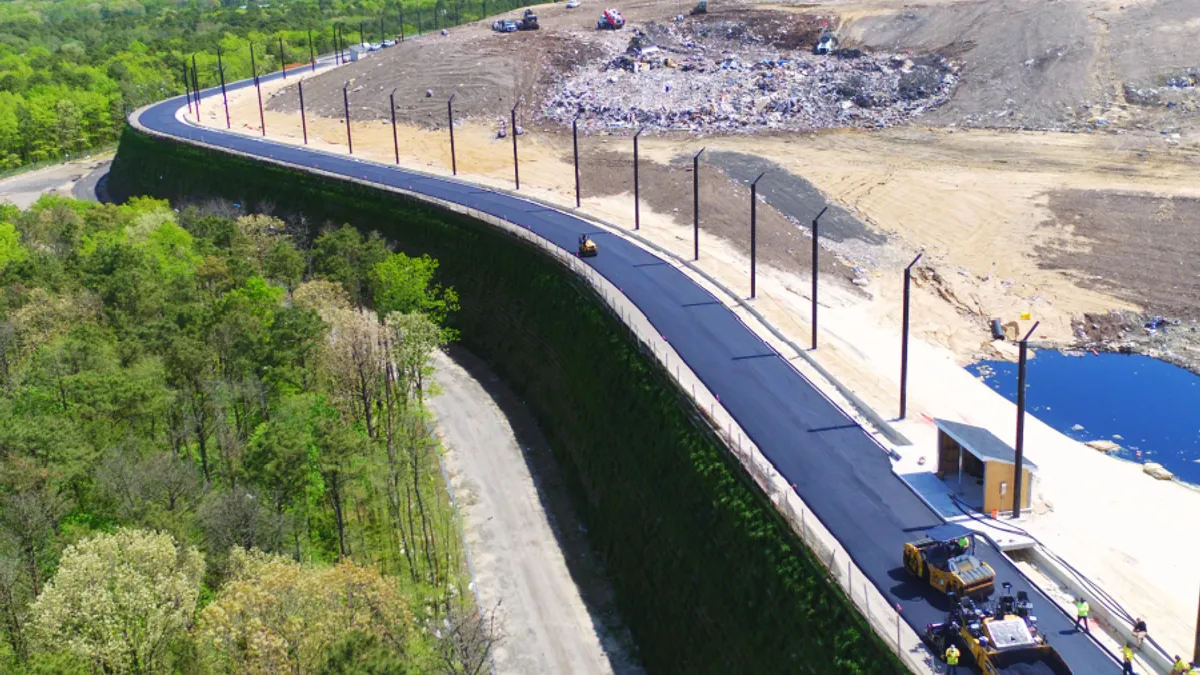A napkin. A Starbucks cup. A plastic bag.
Each item is used by millions of consumers every day — sometimes multiple times a day — resulting in enormous quantities of waste. Some will toss the cup in the trash, others will toss the plastic bag in the recycling. But do residents make their choice of bin based on fact, or on what they think is correct?
An online poll by the Institute of Scrap Recycling Industries and Earth911 showed that 65% of respondents did not understand which plastics to place in curbside collection – leading to the contamination issue plaguing 16% of industry giants’ recycling operations. While this can be due to many factors – including numbers, source credibility, and various bans – one woman wished to put an end to it.
In 2014, Tracy Bugh began a mission to toss recycling confusion in the trash, making education easy and digestible across the nation. She called it, Recycle By City.
The RBC process
As a former creative director in television, Bugh initially wished to produce a television PSA to educate consumers on proper recycling tactics. However, after learning the ways recycling rules can differ from one place to the next, she realized she was going to need something more specific.
Bugh reached out to city officials to learn recycling jargon and the contamination issues that different regions face, and eventually launched separate informational webpages for five different cities: Los Angeles, Santa Monica, and West Hollywood in California, and Austin and Houston in Texas.
"Our main goals of the site were to make it simple, to make it engaging — because I do feel like people are super curious and once you have them try to teach them more — and to make it share worthy," said Bugh. She created a custom platform for each city, consisting of a recycling guide, a "curbside quiz," and recycling tips.
Through sharing and marketing, Recycle By City was able to recently expand into two more cities, creating partnerships with community recycling organizations. Philadelphia was the first city to join into the movement, and Chicago came on in December.
"Since launching last month, over 28,000 Chicago residents have visited, averaging 12 pages per session, and spending nearly 4 minutes engaging with pure recycling information," said Bugh.
Making education fun – and colorful
One of the most compelling aspects of Bugh's creation is the visual design of the site. Throughout the recycling industry, companies and municipalities have struggled to ensure that consumers truly understand commodities being discussed. Bugh has made that simple through pictures of every day items.
"By actually showing what goes in the trash can, there's something a little cathartic about that because you will think 'Oh my God why are napkins in there?'," explained Bugh. "Before, I had never taken the time to look up if a coffee cup is recyclable because in my mind, it's paper, of course it is. It's like how you don't look up if Santa Claus exists. I think a lot of people are looking to search, and I don't know if search is really the best way to handle recycling education. I believe in putting it out there and making it visual."
In addition to the visuals, the site's quizzes allow consumers to determine if their recycling knowledge is up-to-par with the industry. In a September interview with Waste360, Bugh explained that Philadelphia is the most educated public as far as the quiz results go.
"I think there's a lot of shock [among consumers], and the quiz does a really great job at breaking it down," said Bugh. She continued to explain that, when recycling confusion arises, it is Recycle By City's challenge to explain the reasoning behind the rules. "We all lose face if someone says you can't do one thing and somebody else says you can."
To compliment the visual appeal of the site, RBC has ensured that it is sharable across social media sites such as Twitter and Facebook. "I would say probably about 15% – 20% of the traffic we get to the site is being driven by people sharing it. We just want to keep growing that," Bugh said.
Becoming the leader in recycling education
As more communities begin to turn to Recycle By City for guidance, Bugh hopes that partnerships with even larger cities will continue to grow.
"We're still figuring out as we go just because we're brand new and we're learning. Right now, my goal is to get more of the big cities on because I think that's where we can make the most impact," Bugh said.
"The other thing we're finding is that as a big city comes on, neighborhoods around that area and even states surrounding that area are drawn to the site, so the more traffic that we can get coming through the site, then the more that we can serve the smaller communities that don't have the bigger budgets. There's kind of a natural drafting that happens. We really want to be the national destination for all things recycling for residents."


















